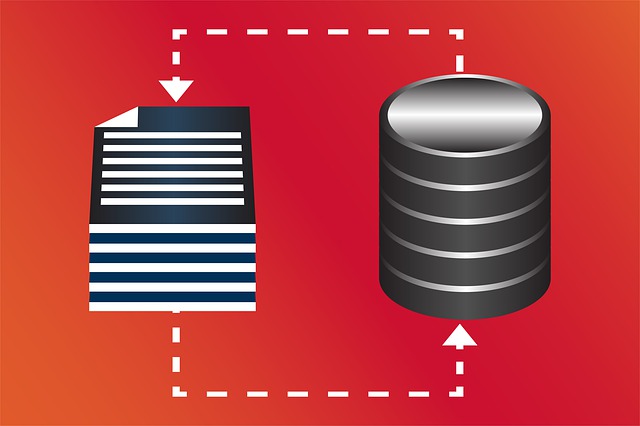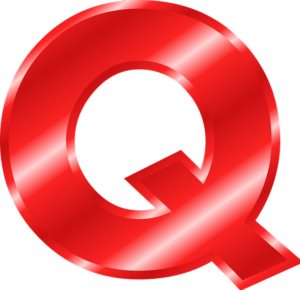Optimizing UK Technical Guidelines: Power of Professional Translation Services
Translation services are indispensable for enhancing UK technical guidelines, ensuring accuracy, consistency, and accessibility across diverse languages. With specialized knowledge of industry jargon and cultural nuances, professional translators bri…….

Translation services are indispensable for enhancing UK technical guidelines, ensuring accuracy, consistency, and accessibility across diverse languages. With specialized knowledge of industry jargon and cultural nuances, professional translators bridge language gaps, fostering trust and uniformity in a globalized market. Advanced tools combine with human expertise to streamline processes, maintain standards, and improve compliance, ultimately benefiting regulated sectors by reducing legal risks and safety concerns. Implementing rigorous continuous improvement strategies, leveraging case studies, and adopting uniform terminology further elevate the precision and usability of UK technical guidelines.
Enhancing the accuracy of UK technical guidelines is paramount in today’s globalised market. With diverse languages and complex regulations, ensuring consistency across translations is a formidable challenge. This article explores strategies to overcome these hurdles, highlighting the pivotal role of professional translation services. We delve into best practices for quality assurance, the benefits of precise technical documentation for users, and case studies showcasing successful UK standards translations. Discover how these approaches can lead to improved clarity, accessibility, and compliance for all stakeholders involved in technical guidelines and standards.
- Understanding the Importance of Accuracy in UK Technical Guidelines
- Challenges in Maintaining Consistency Across Languages
- The Role of Professional Translation Services
- Ensuring Quality: Translation Process and Best Practices
- Benefits of Accurate Technical Documentation for Users
- Case Studies: Successful Translations of UK Standards
- Strategies for Continuous Improvement and Standardization
Understanding the Importance of Accuracy in UK Technical Guidelines

Accuracy is paramount when it comes to UK technical guidelines, as these documents serve as critical references for industries across various sectors. Ensuring their precision is essential to prevent errors and misguidance that could have significant implications, from product safety hazards to legal non-compliance. Every detail, from measurement standards to safety protocols, must be meticulously recorded and up-to-date to reflect the latest advancements in technology and best practices.
Translation services play a vital role in enhancing accuracy for UK technical guidelines and standards, especially in an increasingly globalised marketplace. Professional translators with expertise in technical jargon can bridge the language gap, ensuring that these documents are accessible and correctly interpreted by international audiences. This not only improves understanding but also fosters trust and uniformity across borders, making it easier for businesses to operate within the UK’s regulatory framework while maintaining compliance with global standards.
Challenges in Maintaining Consistency Across Languages

Maintaining consistency across languages in UK technical guidelines is a multifaceted challenge. With an ever-evolving landscape of language use, ensuring that translations accurately reflect the original intent and meaning can be difficult. This is especially true for technical documents that often contain complex terminology and precise instructions. The process involves not just linguistic proficiency but also a deep understanding of cultural nuances and industry-specific jargon.
Translation services play a pivotal role in overcoming these challenges. Professional translators who specialize in UK technical guidelines and standards are equipped to handle the intricacies involved. They employ advanced tools, such as machine translation backed by human expertise, to preserve accuracy while streamlining the process. By leveraging these services, organizations can ensure that their guidelines remain clear, concise, and consistent across all languages, thereby enhancing overall effectiveness and user satisfaction.
The Role of Professional Translation Services

In today’s globalised world, ensuring clarity and consistency across technical documents is paramount, especially within regulated sectors like the UK. Translation services play a pivotal role in enhancing the accuracy of UK technical guidelines and standards, acting as a bridge between complex technical jargon and diverse linguistic landscapes. Professional translators with expertise in technical fields can navigate the nuances of specialized terminology, ensuring that guidelines remain precise and effective across all languages.
These translation services employ advanced tools and industry-specific knowledge to deliver high-quality outputs. They stay updated with the latest UK standards and regulations, guaranteeing that translated documents align perfectly with the source material. By leveraging technology and human expertise, translation services foster better communication, facilitate international collaboration, and ultimately improve compliance for organizations operating within the UK market.
Ensuring Quality: Translation Process and Best Practices

Ensuring quality in the translation process is paramount when updating or creating UK technical guidelines and standards. Professional translation services play a vital role in maintaining accuracy and consistency across various documents. The first step involves selecting qualified translators with expertise in technical terminology specific to the industry being addressed. These specialists should possess a deep understanding of both source and target languages, enabling them to convey complex ideas precisely.
Best practices include providing comprehensive reference materials, glossaries, and style guides tailored to the project. Regular quality assurance checks at each translation stage help identify and rectify errors promptly. Using advanced translation memory software ensures terminology consistency and streamlines the process for future updates or similar projects. This meticulous approach guarantees that UK technical guidelines remain reliable resources for their intended audience.
Benefits of Accurate Technical Documentation for Users

Accurate technical documentation is paramount for users navigating UK guidelines and standards, offering a multitude of benefits that enhance efficiency and safety across various industries. Clear, precise information ensures users can quickly understand complex procedures, reducing errors and improving productivity. It facilitates effective communication among teams, especially when dealing with international collaborations or multilingual workforces, thanks to the crucial role played by translation services for UK technical guidelines and standards.
Well-translated and maintained documentation enables users from diverse linguistic backgrounds to access information seamlessly, fostering inclusivity and uniformity in adherence to industry standards. This is particularly vital in regulated sectors where compliance is mandatory, minimizing potential legal pitfalls and ensuring operations meet required safety and quality benchmarks.
Case Studies: Successful Translations of UK Standards

When enhancing the accuracy of UK technical guidelines, case studies offer invaluable insights into successful translations of standards. By examining previous projects, organizations can gain a deeper understanding of best practices and potential pitfalls when translating technical documentation. These case studies highlight the importance of not just linguistic proficiency but also cultural adaptation and regulatory knowledge for precise translations.
For instance, consider a translation service that successfully navigated the complex landscape of UK construction standards. The project involved converting detailed guidelines on structural integrity into multiple languages for international clients. Through meticulous research, consultation with industry experts, and a deep understanding of local regulations, the translators ensured the translated documents remained faithful to the original intent and met all necessary standards. This success story underscores the value of specialized translation services tailored to UK technical guidelines and standards.
Strategies for Continuous Improvement and Standardization

To enhance the accuracy and standardization of UK technical guidelines, consider implementing a robust continuous improvement strategy. This involves regularly reviewing existing documents for relevance, clarity, and consistency using professional translation services that specialize in technical content. By comparing translated versions with original guidelines, you can identify gaps, errors, or areas for simplification, ensuring the information remains up-to-date and accessible to a broader audience.
Additionally, establishing a standardized format for these guidelines will improve their overall quality. This includes adopting a consistent terminology list, referencing system, and layout to make them user-friendly. Collaboration with industry experts and stakeholders through focus groups or surveys can also provide valuable insights. Regular updates based on feedback and new developments in the field ensure that UK technical guidelines remain authoritative and effective, benefiting businesses and professionals alike who rely on them.
Accurate UK technical guidelines are vital for fostering innovation, ensuring safety, and facilitating international cooperation. By addressing challenges in language consistency and adopting best practices in translation, organizations can leverage professional translation services to enhance guideline accuracy. The benefits extend to users who gain clarity, confidence, and access to a robust knowledge base, as exemplified by successful case studies. Continuous improvement through standardization strategies is key to staying ahead in the digital age, ensuring that UK technical guidelines remain relevant and precise for global audiences. Translation services play a pivotal role in this process, offering specialized expertise for optimal results in technical communication.







